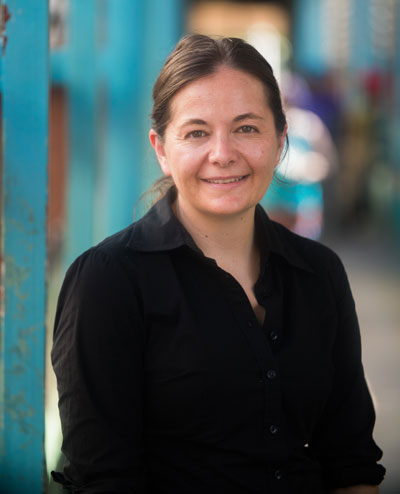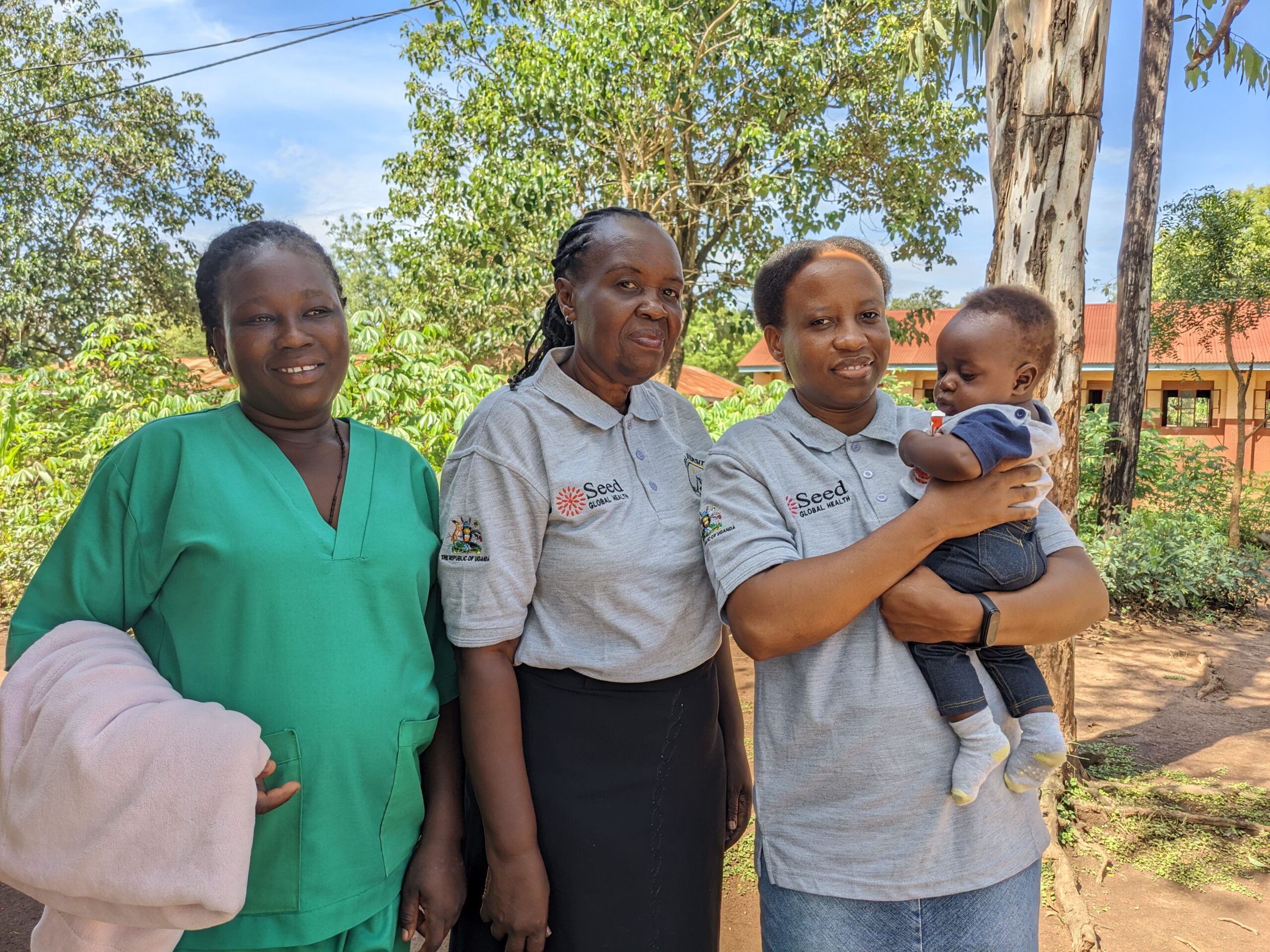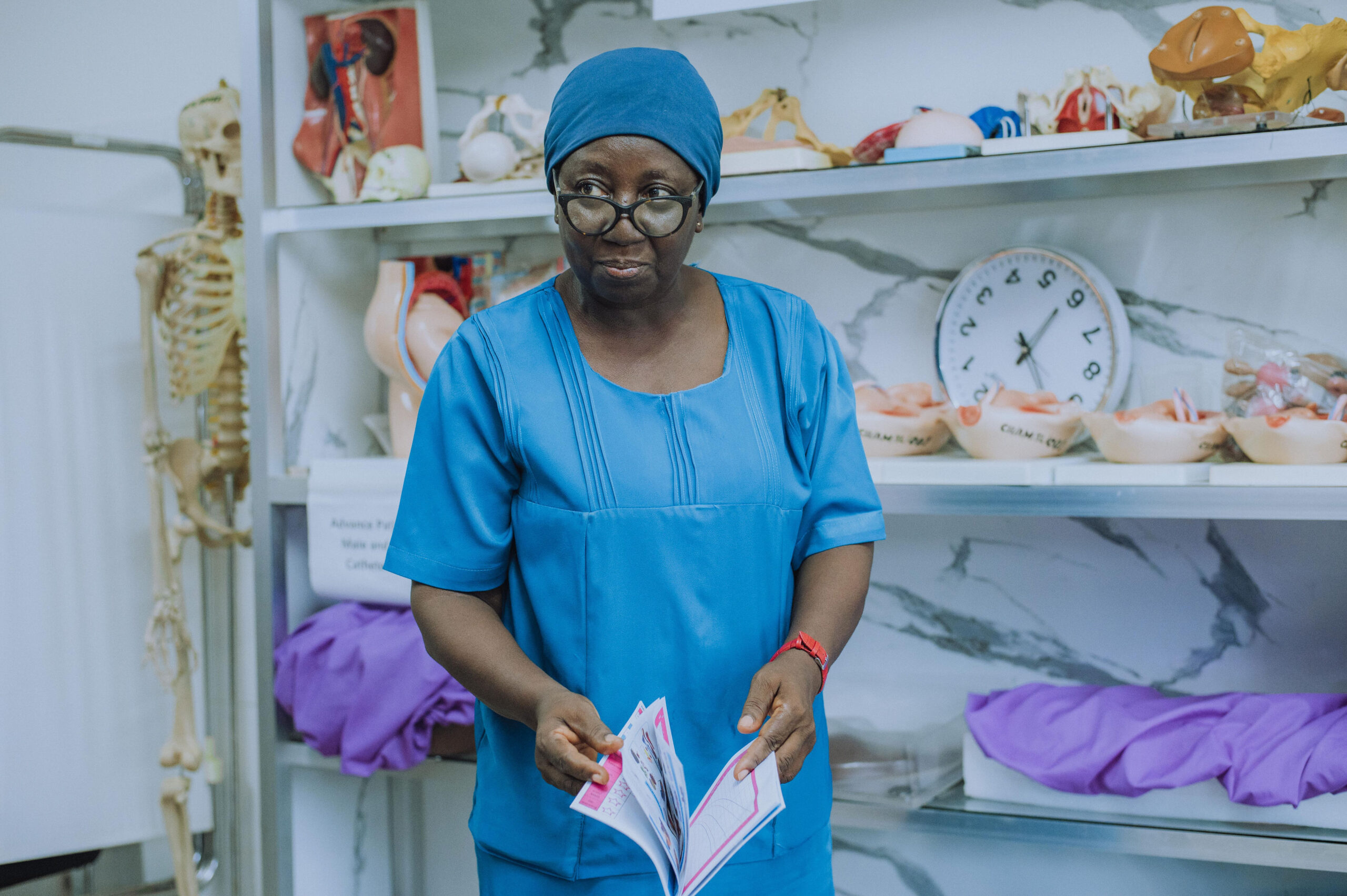National Doctors’ Day: Impacting Communities, One Patient at a Time
March 30 is National Doctors’ Day, an opportunity to recognize the impact that physicians have on communities and their dedication to patients around the country. At Seed Global Health, we believe in investing in the rising generation of physicians, both here in the US and abroad, to support a confident, caring, and committed healthcare workforce. Since 2013, we have placed almost 80 physicians in visiting faculty roles at partner institutions in sub-Saharan Africa to help strengthen medical education.
These Physician Educators not only contributed to strengthening training in the classroom and clinical settings but have also reported that this experience enabled them to refine their own teaching and clinical skills. They return to the US with a desire to continue volunteering, working in resource-limited settings, and teaching – all of which may be of value in addressing health disparities here.
Dr. Esther Johnston has played a significant role in helping to create a future in which every country has a robust health workforce that is able to meet the health needs of its population. She served as a Physician Educator in Tanzania in 2014-2015 and then joined the Seed team, most recently serving as our interim Chief Medical Officer and Director of Family Medicine Programs. She also currently works as a family medicine physician and faculty member with The Wright Center National Family Medicine Residency Program in Auburn, Washington.
For National Doctors’ Day, we spoke with Dr. Johnston about what being a physician means to her and how medicine impacts our communities.

Dr. Esther Johnston
When did you know that you wanted to become a physician? What inspired you?
If you look at my 5th grade yearbook, you’ll find that I originally wanted to become an investigative reporter when I grew up! Sometime in high school, I realized that the best way to combine my desire to build a more just world and satisfy my love of science and learning was to become a physician. I wanted a career where I could wake up every day feeling that I was doing something I found meaningful and be challenged to learn and grow daily.
How has becoming a physician added to your own life? Or what do you value most about being a physician?
I decided to become a family physician in particular because I valued the power of developing a long-term relationship with my patients and partnering with them to help them be healthy over time. As a family doctor, I have been able to work with entire families—I’ve assisted a woman in the birth of her first child and then seen that child for his well child checks. I have witnessed patients overcome addiction. I have watched a single father, newly arrived in the United States, simultaneously work, parent, learn a new language, and go to school to build a better life for his children. I have helped the matriarch of a family, at the end of her life, process a new diagnosis of dementia and helped her craft a plan to move forward. In short, I am privileged to witness unbelievable resilience and courage every day—my patients never cease to inspire me.
Beyond providing care to patients, how can physicians contribute to strengthening health systems and ensuring access to quality care for everyone?
Physicians have a critical role as advocates for their patients and communities. This past week, my fellow faculty and I were grateful to receive a visit from Congresswoman and fellow physician, Kim Schrier, at HealthPoint, the Teaching Health Center where I work. We spoke to her about fixes to Medicaid and Medicare payment models, strategies for shoring up the Supplemental Nutrition Assistance Program to address food insecurity, enhancing access to Medically Assisted Treatment for those with opiate-dependence in local jails, and different approaches to minimizing financial barriers for mission-driven healthcare providers and staff who want to work in federally qualified health centers. We all have a responsibility to do this when we can. I look up to friends and colleagues who heavily invest the time to write op-eds in local newspapers, call their local representatives, and show up personally when the opportunity arises to speak and advocate for their patients and communities.
What is something that you would want the general public, individuals who aren’t clinicians, to know about physicians?
It is an honor and a privilege to be invited into someone else’s life and trusted with personal and private information. Often electronic records, documentation, and billing requirements can be overwhelming, but so many of us aim only to break down those barriers and constantly strive to improve our care so that we can warrant the trust our patients place in us. We are grateful for the opportunity to do what we do.

